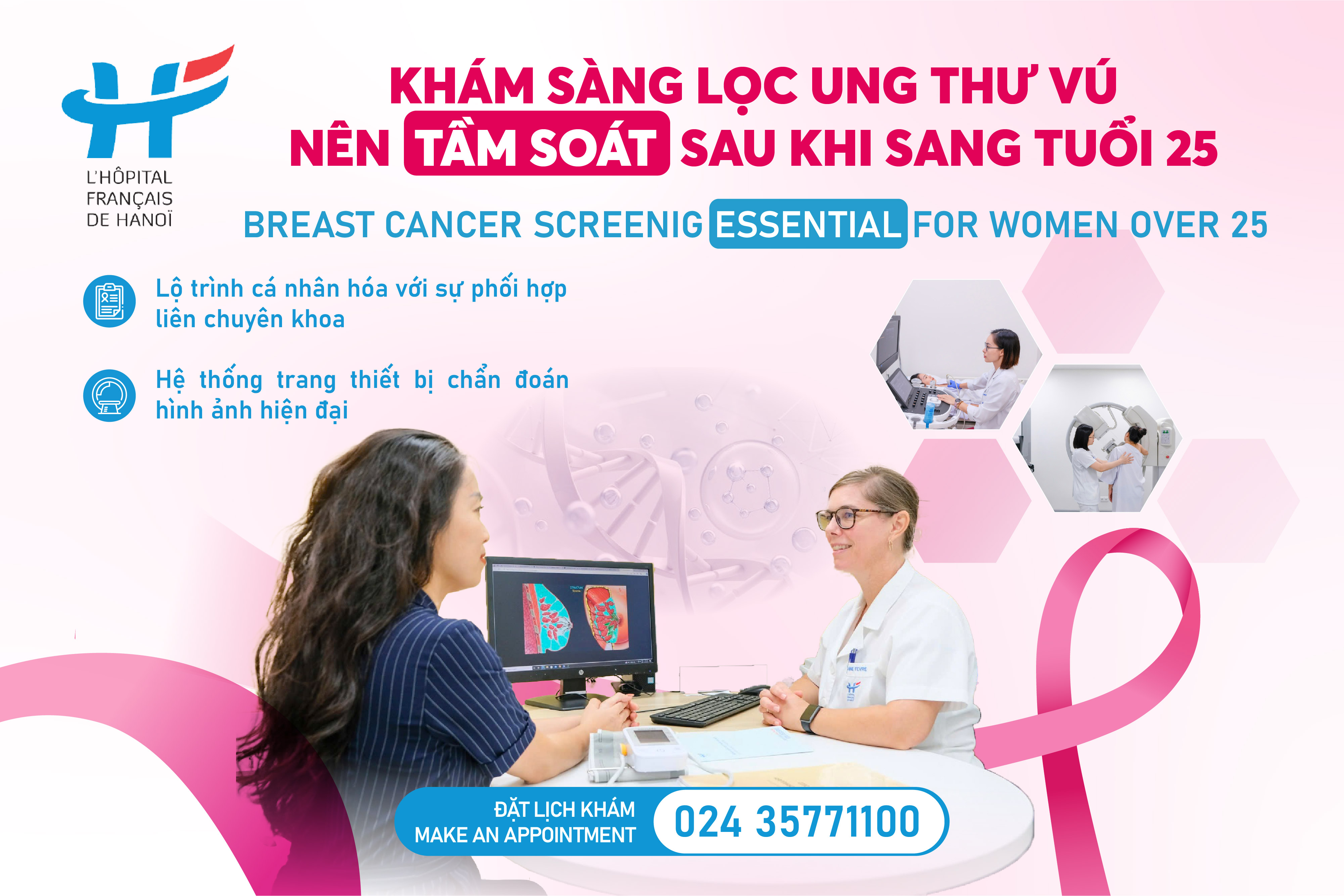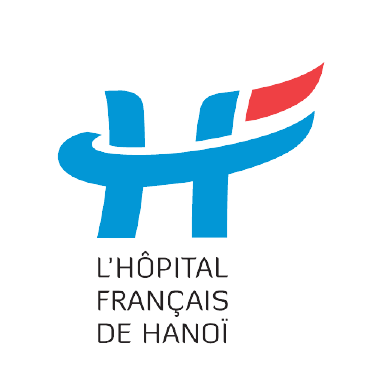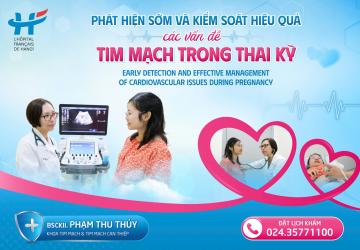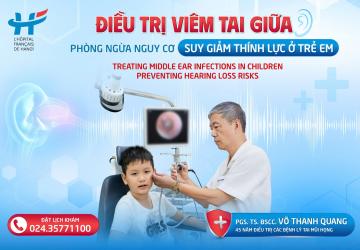News - Tue, 10/08/2024 - 15:08
Breast Cancer Screening: Essential for Women Over 25
Last update 10/08/2024 - 15:09
According to the Global Cancer Organization (GLOBOCAN), in 2022, approximately 24,500 new breast cancer cases were reported in Vietnam, accounting for nearly 26% of all cancers in women, with an incidence rate of 49.6 per 100,000 women.
Dr. Anne Fevre, a specialist in gynecology at Hanoi French Hospital, says that breast cancer is a concerning disease if detected at a late stage. However, for women who detect it early, the success rate of treatment can exceed 90% due to the modern techniques applied in screening and treatment.
Dr. Fevre emphasizes that breast cancer screening is recommended for all women:
- For women at average risk the screening starts at age 25 by clinical breast examination. Screening mammography is recommended from age 40, every 1-2 years.
- For women at high risk the type of screening depends on the risks, such as a family history of breast cancer or ovarian cancer, it is best to begin annual mammography 10 years before the age of diagnosis of the youngest affected relative (but not before the age of 30)
- Those with known genetic predisposition of breast cancer, or having close relatives with mutation should start annual MRI or annual mammography between age 25-30
- People who received chest radiation treatment between the ages of 10-30 should ensure breast awareness and seek clinical examination every 6-12 months, starting imaging 8-10 years after radiation therapy with annual MRI and mammography
- Those with dense breasts should have an annual mammography and breast ultrasound.
It is recommended to avoid breast cancer screening one week before or during menstruation to ensure accurate results. The best time for screening is from the first week to second week after menstruation.
Additionally, women should seek medical attention immediately if they experience any of the following warning signs of breast disease:
- A new lump in the breast or armpit.
- Swelling in part of the breast.
- Irritation or dimpling of breast skin.
- Redness or swelling around the nipple or areola.
- Nipple inversion or pain in the nipple area.
- Nipple discharge, especially if bloody.
- Any changes in the size or shape of the breast.
- Pain in any part of the breast.
Hanoi French Hospital is equipped with modern diagnostic imaging systems, allowing doctors to choose personalized screening methods for each patient, including:
- Breast ultrasound: useful for visualizing areas of the breast that are hard to see on a mammogram, ideal for younger women and those with dense breast tissue.
- Giotto IMS mammography machine: uses X-rays to capture images inside the breast, with sensitivity ranging from 80-94%, increasing with age.
- Siemens MRI: highly useful for detecting abnormalities that may not be visible on a mammogram or ultrasound, especially for women at high risk for breast cancer.
- BRCA1 and BRCA2 genetic testing to screen for hereditary breast cancer risk.
- Vacuum-assisted breast biopsy (VABB): the best histological sampling method, highly accurate and reliable, offering an alternative to surgical biopsy to avoid unnecessary surgeries.
Following the examination, an individualized treatment plan is developed with multidisciplinary collaboration between gynecologists, diagnostic imaging doctors, and oncology specialists to ensure the best outcomes for each patient.
For consultations or breast cancer screening at Hanoi French Hospital, please contact the hotline at 024 3577 1100, message our fan page "Hanoi French Hospital," or reach out via Zalo at zalo.me/2008009049335817955.




